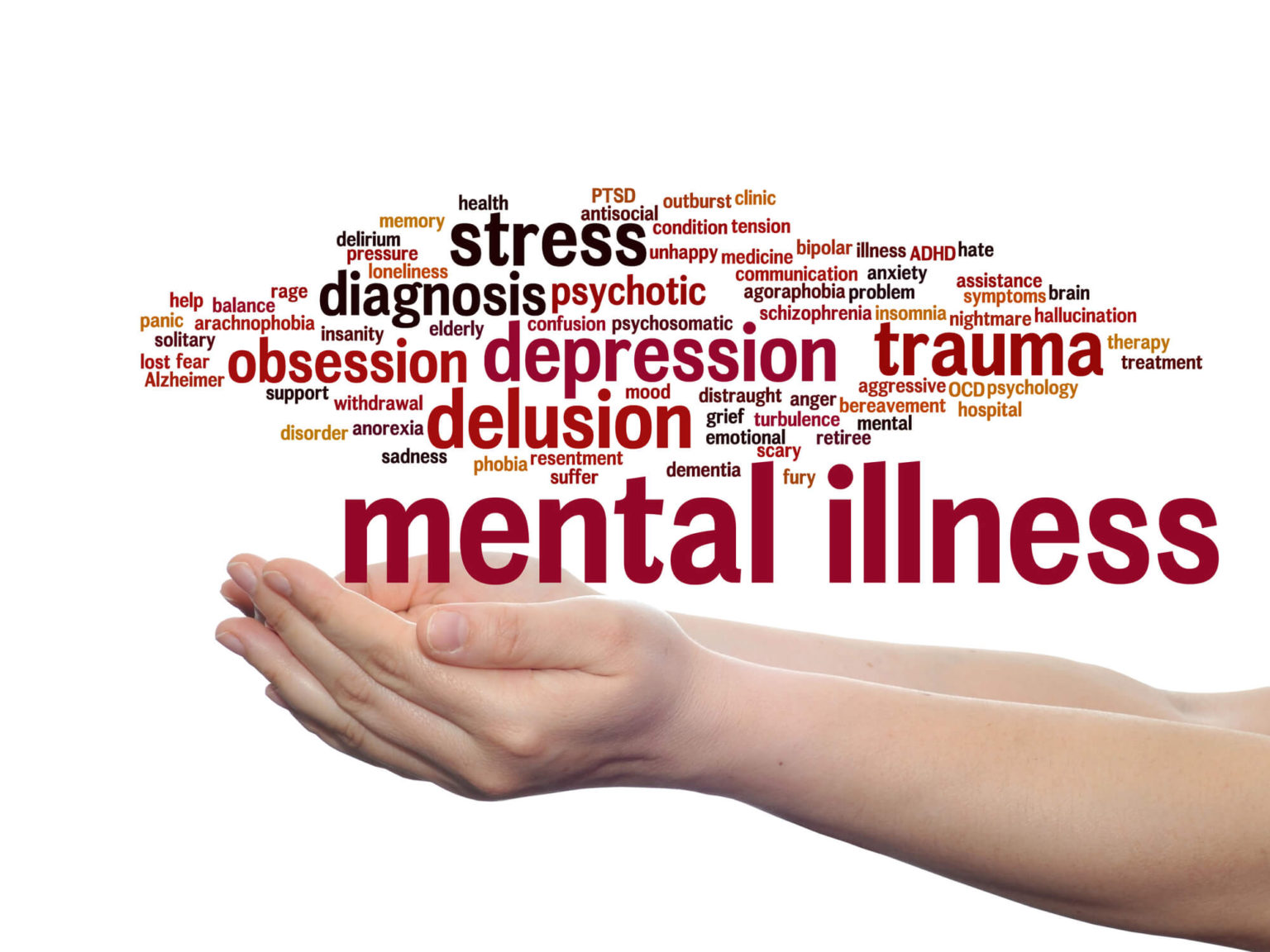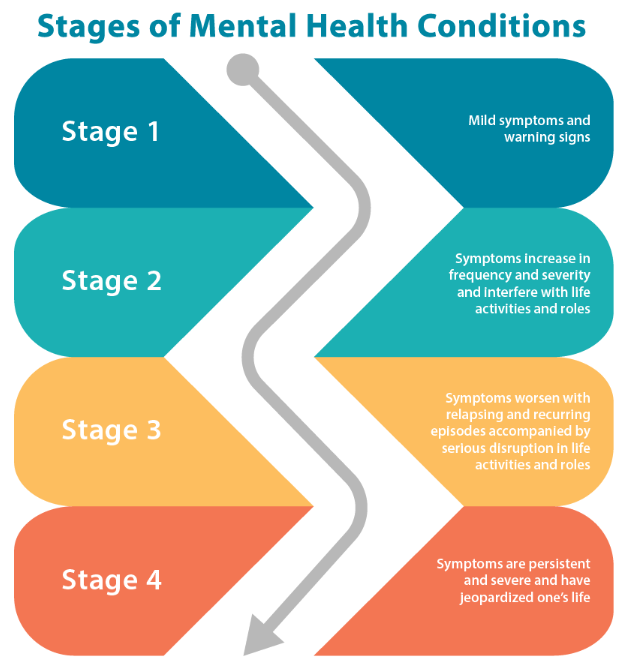

Mental Health is increasingly becoming an issue with young and elderly alike. Over 8 crore people in India suffer from some form of mental health issues of which over 90% remain untreated. It can affect people of any age, gender, profession, socio-economic status or cultural background. As the symptoms are confusing they do not get diagnosed early and have serious manifestations later. Mental health issues are very personal and situation-specific and have varying degrees of impact. From time to time, we all go through mood swings and short spans of depression or discomfort, but we bounce back soon. This is not a mental illness. Mental well-being has several facets which affect how we feel.
Mental Illness is when a person's thoughts, feelings, or behaviour become negative and cause significant distress or make it hard for them to handle daily life. This can make them feel sad, anxious, and lonely, clouding their thinking and making them act in odd ways that could be harmful to them and others around them.
Gene studies and brain imaging have confirmed that mental illnesses are related to our brains and are neurological. Mental disturbances and disorders affect thinking, perception and self-awareness. But with no distinct biological markers, it becomes difficult to diagnose and treat them early enough. Given the confused state, we do not even seek help unless it is at a more advanced stage.
Mental health disorders can vary widely in their symptoms and severity depending on individual situation. Any one symptom does not determine mental illness but a combination and frequency are clear signs. People with suicidal thoughts or intent, or thoughts of harming others, need immediate attention. Symptoms are the following:

Source: Psychiatry.org - Warning Signs of Mental Illness
Symptoms of a mental illness progress over time. The progression is typically defined over 4 stages starting from mild symptoms which do not impact the individual's life to chronic, severe symptoms which could jeopardise the individual’s ability to live. According to research, the average amount of time that passes between the onset of initial symptoms and treatment is 11 years (Source: NAMI).

The key message is to seek help in the early stages. Early intervention can help reduce the severity of mental illness and interruptions in quality of life and functions. It may even be possible to delay or prevent a major mental illness altogether.
Sometimes, despite our best efforts to stay well including a good diet, regular exercise, mentally active and emotionally balanced, and socially connected, we may still face mental challenges.
Mental health diagnosis identifies specific conditions that influence a person's emotional, psychological, and social well-being. This assessment is usually carried out by a qualified mental health professional who utilises various methods, including interviews, questionnaires, and, in some cases, physical examinations to eliminate other potential medical issues. This process aims to gain insight into the symptoms, their severity, and how they affect the individual's daily functioning. Timely and accurate diagnosis is crucial, as it enables prompt interventions, helps reduce stigma, guides patients toward tailored treatment plans, and promotes recovery and long-term well-being.
Mental illnesses are treated by a diverse team of MHPs including psychiatrists, clinical psychologists, psychiatric social workers and therapists. Treatment options include:
Cautions: Do not self-medicate, skip or modify doses, or independently treat health conditions. Seek professional help always.

The immediate family and close friends play an important role in identifying mental health issues in an individual. As a family member or friend, be watchful of changes in the person’s moods, behaviours and emotions. Early intervention is critical because mental health conditions often get worse without treatment. If you think you notice symptoms, take the following steps:

Seek professional help by reaching out to a Mental Health Professional (MHP), mental health Helpline and doctor for support and guidance. Treatment options are accessible through both government and private care services. In India, you can contact the mental health helpline Tele MANAS at 14416 OR 1-800 891 4416 available every day of the week and offering support in multiple languages. Remember, there is no stigma in having mental health issues, you are not alone in this journey.